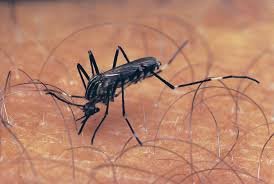Greece has confirmed 75 cases of West Nile virus (WNV) infection so far this year, with five tragic deaths reported, according to the National Public Health Organisation (EODY). All the fatalities involved people over 71 years old, highlighting the risks for seniors.
Out of these cases, 62 people showed serious central nervous system (CNS) symptoms like encephalitis, meningitis, or sudden paralysis. The remaining 13 had milder symptoms or none at all. The first infections popped up in July, and over the last two months, cases have spread to 34 municipalities across 18 regional units.
In the past week alone, EODY noted six new local cases, plus two imported ones—one from Serbia and another from Italy. Health experts warn that more West Nile virus cases could surface soon, so staying vigilant is key.
This isn’t just a Greek issue. West Nile virus infections have also turned up in other European countries like Albania, Bulgaria, France, Italy, Spain, Hungary, Romania, and Serbia. The World Health Organisation (WHO) explains that WNV can lead to severe neurological problems and even death in humans. It spreads mainly through mosquitoes biting infected birds, and while birds are the main carriers, people, horses, and other animals can catch it too.
West Nile virus belongs to the flavivirus family and is part of the Japanese encephalitis group. First discovered in 1937 in Uganda’s West Nile district from a woman’s blood sample, it was later found in birds in Egypt’s Nile Delta in 1953. Back then, it wasn’t seen as a big threat to birds, but a deadlier strain emerged in Israel in 1997, causing encephalitis and paralysis in species like crows.
Human West Nile virus cases have been around for over 50 years worldwide, with major outbreaks hitting places like Greece, Israel, Romania, Russia, and the USA—often along bird migration paths. The virus thrives in Africa, parts of Europe, the Middle East, West Asia, and Australia. Since arriving in the US in 1999, it’s spread rapidly from Canada down to Venezuela.
If you’re in an affected area, experts recommend using mosquito repellent, wearing long sleeves, and removing standing water to curb breeding. Stay safe and keep an eye on local health updates for the latest on West Nile virus prevention.
Stay informed on all the latest news, real-time breaking news updates, and follow all the important headlines in world News on Latest NewsX. Follow us on social media Facebook, Twitter(X), Gettr and subscribe our Youtube Channel.



